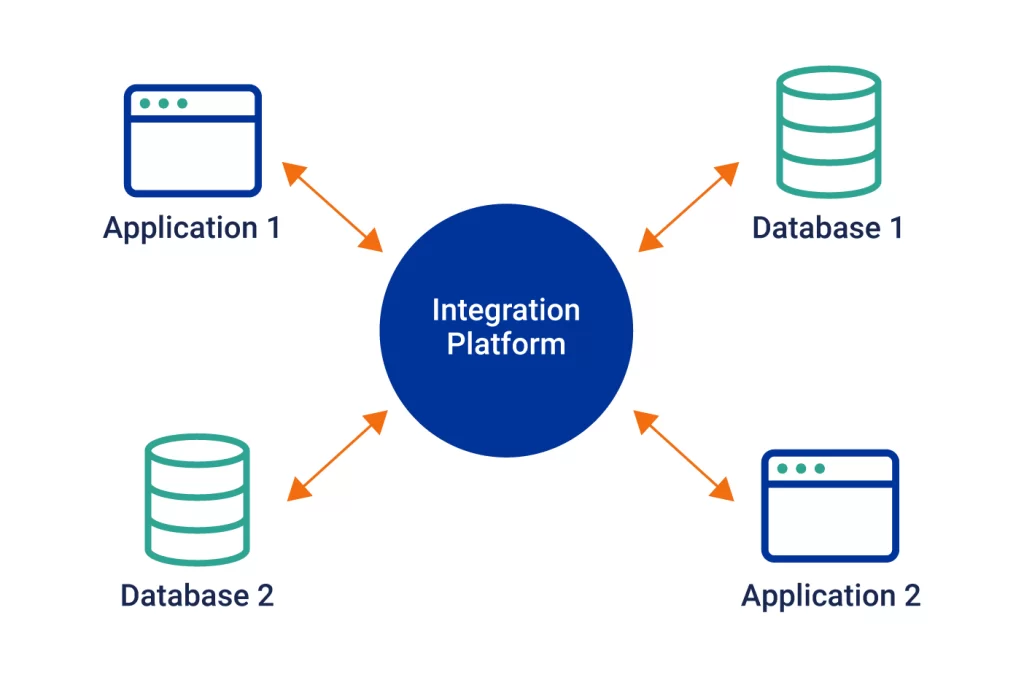Cloud integration, no doubt, is one of the significant challenges facing today’s businesses.
►►► See our products: Magento POS, BigCommerce POS, Shopify POS, Phần mềm CRM, Woocommerce POS, Restaurant POS, NetSuite POS, Thailand POS, South Africa POS and Commercetools POS
To fulfill the growing need for reliable and secure cloud integration solutions, some vendors have started to deliver integration services known as iPaaS (Integration Platform as a Service). So what is the business iPaaS integration platform? Keep reading for more information.
What Is iPaaS And How Does It Work?
What Is It?
iPaaS is a cloud-based service that connects your data and applications. That way, it simplifies integration activities, making it easier to connect data and applications deployed in your data centers and cloud environments. It allows you to develop and deploy integrations in the cloud without installing or managing any hardware and middleware.
How Does It Work?
iPaaS vendors typically host application servers and infrastructure data and provide integration tooling and middleware that help businesses build, deploy, test, and manage the software housed in the cloud.
Also, most iPaaS offerings can boost the development of integration flows across a business by using business rules and pre-built connectors to define interactions in multi-tenant environments.
iPaaS providers can be likened to contractors hired to assist and manage a kitchen renovation. While the homeowner chooses specific appliances, lighting, flooring, and any other custom design choices they can afford and prefer, the contractor is responsible for the underlying requirements, including collecting materials or cooperating with specialists like carpenters and electricians.
In the situation of iPaaS, the vendor is responsible for the governance and management of the varied services, whereas businesses pursuit and request support for software functionality and custom application features.
iPaas Capabilities And Functionalities
Regarding capabilities or functionalities, most iPaaS services provide the same methods to connect various platforms, systems, and applications, but the specific integrations may vary. Here are some standard capabilities that an iPaaS platform should include:
- API management.
- Automated adaptors.
- Data Mapping and analytics.
- Workflow integration development.
- Data standardization and communication.
- Implementing communication protocols.
- Real-time processing.
- Integration management.
- Ongoing performance monitoring.
- Flexibility for customer connections.
- Security and safety protocols and encryption.
- Automatic reporting of performance or failure.
What Are Ipaas Pros And Cons?
Pros
- Cost-effective app connections.
- Greater business agility.
- Better data compliance and security.
- Support for lightweight messaging protocols.
- Great for handling IoT workloads.
- High-volume, real-time connections and near real-time processing.
- Keeps your applications and data protected.
- Easy to manage and review integrations.
- Deliver capabilities beyond integration
Cons
- Prevent the team at large from getting involved.
- Fail to automate workflows.
- Can’t provide platform bots for a business communications platform.
What Are Ipaas Enterprise Use Cases?
iPaaS can be applied to various enterprise integration needs across many data sources and platforms. Here is a list of common iPaaS use cases:
- Application-to-application integration.
- Microservices integration.
- B2B integration.
- Data integration.
- Platform integrations.
- IoT device integration.
- Big data integration.
- Multiple cloud integrations.
- Event stream integration.
What Is The Future Of iPaas?
It is safe to say that iPaaS will be the future of integration. With the capability to handle complex integrations and flexible tools, it will grow as businesses grow. iPaaS connects applications to make a responsive solution that will change as enterprises need changes.
Undoubtedly, in the coming years and as technology evolves, iPaaS systems will evolve. They enable businesses to deal with complex integrations and monitor growing amounts of data.
The Bottom line
You now have the information about the iPaaS platform. It is time to start developing and implementing your cloud integration.
Don’t know where to begin? Do not worry! Head over to kincloud.io now to get advice and help from experts on automation and integration platforms for businesses.
